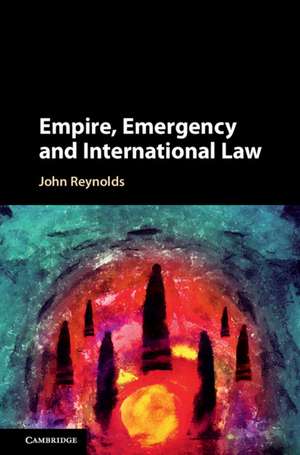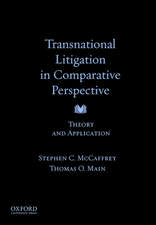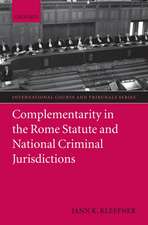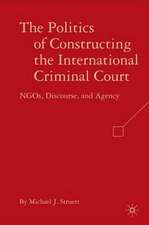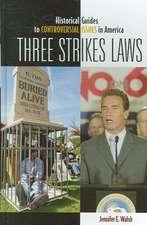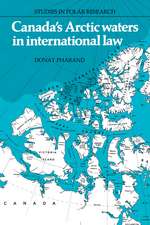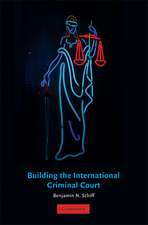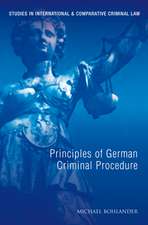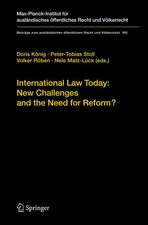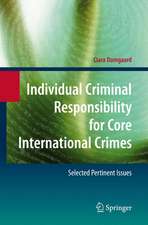Empire, Emergency and International Law
Autor John Reynoldsen Limba Engleză Paperback – 5 dec 2018
| Toate formatele și edițiile | Preț | Express |
|---|---|---|
| Paperback (1) | 288.04 lei 6-8 săpt. | |
| Cambridge University Press – 5 dec 2018 | 288.04 lei 6-8 săpt. | |
| Hardback (1) | 730.62 lei 3-5 săpt. | +25.73 lei 4-10 zile |
| Cambridge University Press – 9 aug 2017 | 730.62 lei 3-5 săpt. | +25.73 lei 4-10 zile |
Preț: 288.04 lei
Nou
Puncte Express: 432
Preț estimativ în valută:
55.12€ • 57.34$ • 45.51£
55.12€ • 57.34$ • 45.51£
Carte tipărită la comandă
Livrare economică 15-29 aprilie
Preluare comenzi: 021 569.72.76
Specificații
ISBN-13: 9781316623886
ISBN-10: 1316623882
Pagini: 341
Dimensiuni: 151 x 228 x 16 mm
Greutate: 0.46 kg
Editura: Cambridge University Press
Colecția Cambridge University Press
Locul publicării:Cambridge, United Kingdom
ISBN-10: 1316623882
Pagini: 341
Dimensiuni: 151 x 228 x 16 mm
Greutate: 0.46 kg
Editura: Cambridge University Press
Colecția Cambridge University Press
Locul publicării:Cambridge, United Kingdom
Cuprins
Foreword; Prologue; Part I. Traditions of the Oppressed: 1. Emergency, colonialism and third world approaches to international law; 2. Racialisation and states of emergency; 3. Emergency doctrine: a colonial account; Part II. Empire's Law: 4. Emergency derogations and the international human rights project; 5. Kenya: a 'purely political' state of emergency; 6. The margin of appreciation doctrine: colonial origins; Part III. The Colonial Present: 7. Palestine: a 'scattered, shattered space of exception'?; 8. Australia: racialised emergency intervention; 9. International law, resistance and 'real' states of emergency; Bibliography.
Recenzii
'John Reynolds explores the development and operation of emergency rule in colonial territories, and the enduring influence of this model on emergency law and, indeed, international law. There is a great deal he illuminates in this book, which combines erudition with superbly clear writing. The book examines 'imperial emergency rule' - it could in fact be termed a global history of imperial emergency rule - and connects together accounts of emergency that are often treated separately: colonial emergencies, the impact of these emergencies on the drafting of international legal instruments, and contemporary settler colonialism. It is by drawing on this range of diverse yet related materials that Dr Reynolds provides such a far-reaching account of the complexities of how emergency law operates, and such an incisive understanding of how it produces resistance from below. Empire, Emergency and International Law is an eloquent and valuable book which provides enduring insights into a pervasive feature of our times.' Antony Anghie, author of Imperialism, Sovereignty and the Making of International Law
'This luminary work on states of emergency and settler colonialism has given us a fresh set of eyes with which to understand the structural aspects of law, and its intersections with vexing questions of power and governance, human rights and emancipation.' Noura Erakat, George Mason University, Virginia
'This is a profoundly important book that should reshape the way we explore and use international law and the concept of states of emergency, among many other things.' Mark LeVine, University of California, Irvine
'Highly relevant for contemporary times, this book focuses on the colonial lineages that have shaped current emergency law. This is an exceptional book which goes to the very core of law itself and its relationship with power. It is simultaneously engaging and penetrating. Presenting very serious and complex issues in a highly accessible way, it is masterful and assured in its depth of analysis.' Irish Association of Law Teachers (IALT) Council, Kevin Boyle Book Prize Judging Panel
'This is a book which tackles complex questions with serious depth, while remaining accessible to the reader. It is grounded not only in legal theory, history and politics but is also informed by perspectives of on-the-ground activism and awareness of social change.' Úna Ní Raifeartaigh, Judge of the High Court of Ireland
'John Reynolds has written a book of immense importance in at least three distinct areas of law: legal history, international law and comparative law. The level of detail, the theoretical basis and the ability to display the link between historical eras and disparate territories demonstrate conclusively the origins of emergency law in the colonial experience, a critically important legacy that he documents in magisterial fashion. Reynolds grounds his book firmly in the camp of Third World Approaches to International Law (TWAIL), which serves his principal mission of discussing the racism, imperialism and colonialism at the heart of emergency law. It is hard to overstate the importance of Reynolds' intervention. Empire, Emergency, and International Law is the corrective to the ahistorical and wrong-headed debate we have been subject to for far too long. It is an indispensable book that should serve as a frame of reference for any study on the law of emergency.' Wadie Said, Journal of Conflict & Security Law
'This luminary work on states of emergency and settler colonialism has given us a fresh set of eyes with which to understand the structural aspects of law, and its intersections with vexing questions of power and governance, human rights and emancipation.' Noura Erakat, George Mason University, Virginia
'This is a profoundly important book that should reshape the way we explore and use international law and the concept of states of emergency, among many other things.' Mark LeVine, University of California, Irvine
'Highly relevant for contemporary times, this book focuses on the colonial lineages that have shaped current emergency law. This is an exceptional book which goes to the very core of law itself and its relationship with power. It is simultaneously engaging and penetrating. Presenting very serious and complex issues in a highly accessible way, it is masterful and assured in its depth of analysis.' Irish Association of Law Teachers (IALT) Council, Kevin Boyle Book Prize Judging Panel
'This is a book which tackles complex questions with serious depth, while remaining accessible to the reader. It is grounded not only in legal theory, history and politics but is also informed by perspectives of on-the-ground activism and awareness of social change.' Úna Ní Raifeartaigh, Judge of the High Court of Ireland
'John Reynolds has written a book of immense importance in at least three distinct areas of law: legal history, international law and comparative law. The level of detail, the theoretical basis and the ability to display the link between historical eras and disparate territories demonstrate conclusively the origins of emergency law in the colonial experience, a critically important legacy that he documents in magisterial fashion. Reynolds grounds his book firmly in the camp of Third World Approaches to International Law (TWAIL), which serves his principal mission of discussing the racism, imperialism and colonialism at the heart of emergency law. It is hard to overstate the importance of Reynolds' intervention. Empire, Emergency, and International Law is the corrective to the ahistorical and wrong-headed debate we have been subject to for far too long. It is an indispensable book that should serve as a frame of reference for any study on the law of emergency.' Wadie Said, Journal of Conflict & Security Law
Notă biografică
Descriere
This book analyses the states of emergency exposing the intersections between colonial law, international law, imperialism and racial discrimination.
